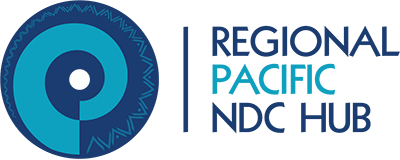What is an NDC?
NDC stands for Nationally Determined Contribution.
NDCs embody efforts by each country to reduce national emissions and adapt to the impacts of climate change, with the aim of achieving the commitments ratified in the Paris Agreement.
What is the Paris Agreement?
The Paris Agreement is an international, binding treaty which was developed under the United Nations Framework Convention on Climate Change (UNFCCC) at its 21st Conference of the Parties (COP21) in Paris, France in 2015. 197 countries have ratified the Paris Agreement and made a legally bound commitment to curb global warming. This is aimed to be achieved by limiting average global temperature rise to well below 2 degrees Celsius, pursuing efforts to limit the temperature rise to 1.5 degrees Celsius and to promote a net-zero emissions, resilient development pathway.
How are NDCs related to the Paris Agreement?
At the core of the Paris Agreement is the NDC mechanism. Each country defines their NDCs which outlines short-term and long-term commitments for climate change mitigation and adaptation. Countries update and submit their NDCs to the United Nations Framework Convention on Climate Change (UNFCCC) Secretariat every five years. This also ensures increasingly ambitious climate targets.
When was the Regional Pacific NDC Hub established and where is it based?
The Regional Pacific NDC Hub was launched in November 2017 at the 23rd Conference of the Parties (COP23) in Bonn, Germany. This followed calls from leaders of the Pacific for a platform to support them in implementing and enhancing their NDCs, during the inaugural Climate Action Pacific Partnership (CAPP) Conference earlier that year. The NDC Hub is hosted in the Pacific Community premises (who is also a partner of the NDC Hub) based within the Pacific Community – SPC campus in Suva, Fiji, who is also one of the proud partners of the NDC Hub.
What is the objective of the Hub?
The objective of the Pacific NDC Hub is to support Pacific Island Countries in reviewing, enhancing and implementing their climate commitments with the aim of achieving sustainable and resilient economic development in the Pacific. The NDC Hub follows a demand-driven approach, responding directly to requests for NDC-related support from Pacific Island Countries.
How does the Regional Pacific NDC Hub operate?
The Regional Pacific NDC Hub is managed by the Deutsche Gesellschaft für Internationale Zusammenarbeit (GIZ) . It works in partnership with the Global Green Growth Institute (GGGI), the Pacific Community (SPC) and the Secretariat of the Pacific Regional Environment Programme (SPREP) to implement and service the country requests sent in by 15 Pacific Island Countries and Territories.
These entities constitute the NDC Hub Coordination Group, which provides institutional support and guidance on the NDC Hubs work.
Who supports the Regional Pacific NDC Hub’s resources and work?
The NDC Hub is for the Pacific, owned by the Pacific. The Hub has a Steering Committee which is the overarching body monitoring the Hub’s progress and providing guidance to the NDC Hub’s work. The Steering Committee comprises representatives from the three sub-regions of the Pacific, Melanesia, Micronesia and Polynesia as well as Fiji as host country. The NDC Hub also has an Implementation Unit consisting of administrative and technical staff which form the engine of the Hub. The Implementation unit drives work in all the 15 member countries and territories of the NDC Hub and reports to the Steering Committee.
Can other countries become a member of the Regional Pacific NDC Hub?
The Regional Pacific NDC Hub was created to cater to the needs of the Pacific Large Ocean States on achieving their long-term climate commitments. If any Pacific country or territory is interested in becoming a member in the Regional Pacific NDC Hub, please connect with the office on [email protected].
Cannot find your questions on this page?
Drop us a line on the email below and we’ll reach out to you soon!
Email: [email protected]

